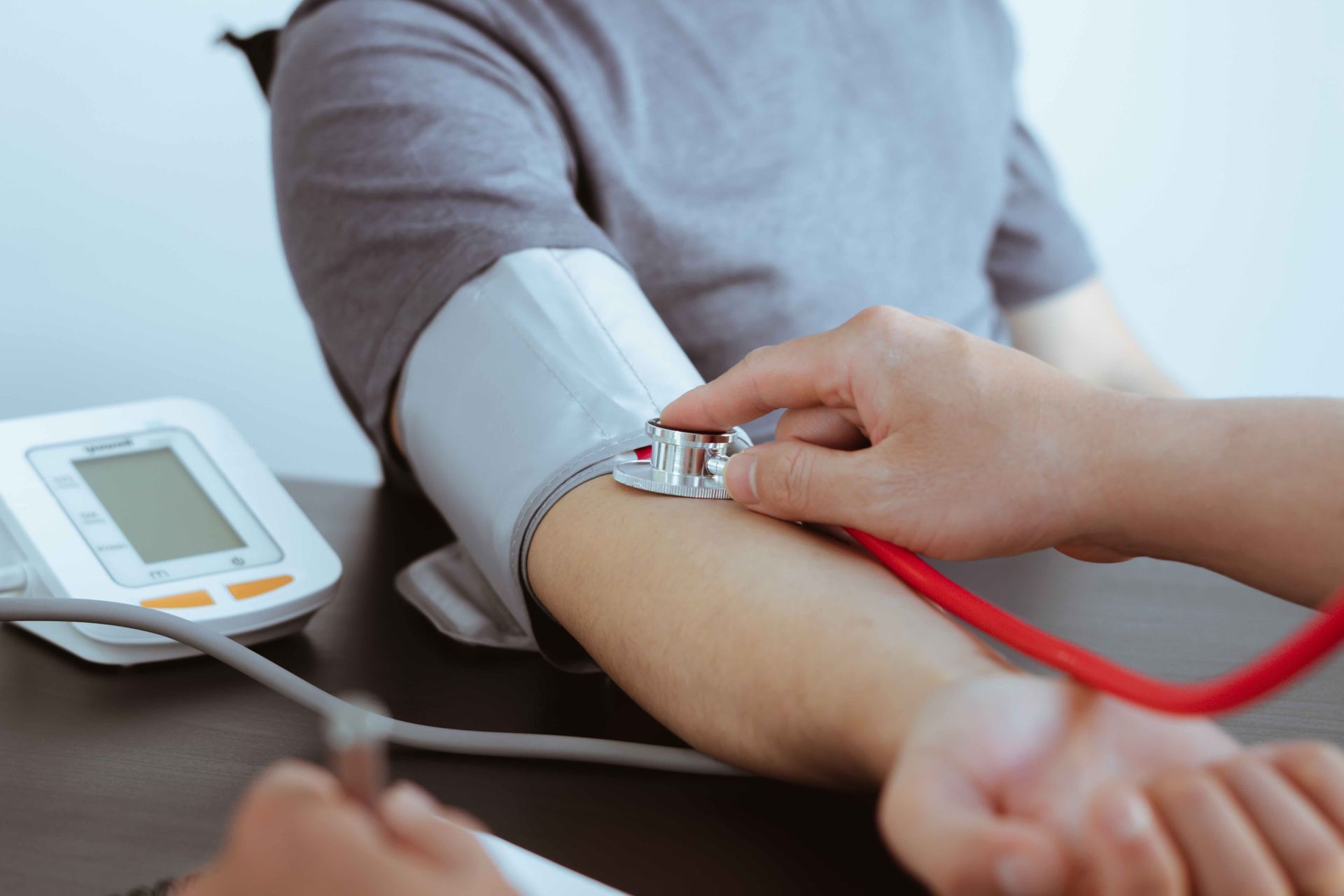9 Exceptional Tips for Maintaining Urinary Tract Health in Men
Urinary tract health often takes a backseat in conversations about men’s wellness, especially considering that women are more likely to experience urinary tract infections (UTIs).
However, its influence on daily comfort, kidney function, and long-term well-being is hard to ignore. Whether it’s reducing the risk of infections, easing urinary flow, or protecting prostate health, taking care of the urinary system is part of staying healthy at any age.
Men may experience issues such as UTIs, digestive and kidney diseases, prostatitis (inflammation of the prostate), or benign prostatic hyperplasia (BPH)—a non-cancerous but enlarged prostate gland that can affect urination.
Left unaddressed, these problems may interfere with sleep, exercise, and quality of life. Additionally, chronic urinary tract infections are often related to painful conditions such as kidney stones.
If you’re worried about your bladder, here are nine practical, science-backed men’s health tips to support better urinary tract health for the long haul.
1. Stay Well-Hydrated Throughout the Day
Consistent fluid intake is one of the simplest, most overlooked steps in maintaining men’s urinary health and preventing urinary tract infections. Water intake helps dilute urine and flush bacteria out of the urinary system, reducing the chance of infection.
Adult men are generally advised to consume about 3.7 liters (or roughly 13 cups) of fluids daily from all sources, including food. While this number may vary depending on physical activity and climate, regular sips throughout the day are more helpful than drinking large amounts all at once.
If you’re like most Americans, you might not be getting enough water, especially if you’re in later adulthood. Studies show that older individuals are
20% to 30% more prone to developing dehydration due to factors such as immobility, impaired thirst mechanism, diabetes, etc.
Here are some easy hydration tips for men:
- Keep a refillable water bottle nearby.
- Set phone reminders or drink a glass with every meal.
- Swap out sugary sodas and energy drinks for plain or fruit-infused water.
Avoid common myths, such as "more is always better." Overhydration can actually place stress on the kidneys. Instead, just focus on drinking water steadily and consistently.
2. Practice Good Personal Hygiene
Good genital hygiene habits can lower the chance of infections, including bladder infections and UTIs. Regularly washing the genital area with warm water and a mild, unscented soap helps reduce the buildup of bacterial growth.
Other personal hygiene tips for men include:
- Washing daily and after sweating (e.g., post-workout or after swimming)
- Wearing clean, breathable cotton underwear
- Changing out of wet clothing promptly
For the sake of your urinary tract health, try to avoid harsh soaps, douches, or heavily fragranced products. These can disrupt the natural balance of bacteria and potentially cause irritation.
3. Maintain a Balanced Diet Rich in Urinary Health-Boosting Foods
A bladder-friendly diet can have a direct effect on the urinary system. Some foods contain helpful compounds that may reduce inflammation and bacterial adherence in the urinary tract.
For example, here are some popular foods for urinary health:
- Cranberries or cranberry juice, which contain proanthocyanidins that may help prevent bacteria from sticking to the bladder lining
- Probiotics, such as those found in yogurt or fermented foods, help maintain a healthy bacterial balance and urinary tract health
- Fruits and vegetables,
especially those high in antioxidants, like blueberries, spinach, and sweet potatoes
Consider limiting caffeine, spicy foods, and artificial sweeteners if they cause bladder discomfort or urine pain. Also, don’t forget fiber—it supports regular bowel movements, which helps reduce pressure on the bladder.
4. Practice Safe Sexual Habits & Decrease Risk Factors
Bacteria can enter the urethra during sexual activity, which increases the risk of urinary and kidney infections.
As the
Mayo Clinic reports, the risk of urinary tract infections after sex tends to be higher in women, but men are not immune, particularly if they have other underlying health concerns or engage in unprotected sex.
One serious condition men should be aware of is
acute bacterial prostatitis, a sudden bacterial infection of the prostate gland. This condition can cause symptoms such as painful urination, difficulty urinating, pelvic or lower back pain, fever, and sometimes flu-like symptoms. It often results from bacteria traveling from the urethra or bladder into the prostate.
Here are some sexual health tips for preventing infections in men:
- Urinating soon after sexual activity
- Using condoms to reduce the risk of sexually transmitted diseases
- Speaking openly with partners about sexual health
- Seeking medical advice if you experience burning, discharge, or discomfort
Safe sex practices contribute to urinary tract health and support broader health goals, such as reducing inflammation, preventing complications, and promoting confidence in relationships.
5. Avoid Holding Urine for Too Long
Ignoring the urge to urinate can lead to stagnation, which gives bacteria more time to grow. Over time, urinary retention risks can contribute to weakened bladder muscles and work against a healthy urination schedule.
If you find yourself frequently delaying trips to the restroom, it may help to set reminders or build bathroom breaks into your routine. As the
Cleveland Clinic states, most people need to pee about seven to eight times per day, and if you’re peeing less than that, you may be dehydrated or holding your bladder too long.
Watch for urination habits or problems such as:
- A weak or slow urinary stream
- A feeling of incomplete emptying
- Frequent nighttime urination
Persistent symptoms may suggest underlying bladder health conditions like BPH or infections. A healthcare provider can help evaluate the cause and prescribe oral antibiotics if necessary.
6. Exercise Regularly and Maintain a Healthy Weight
Regular exercise supports blood flow, nerve health, and muscle tone—key components in bladder and prostate function. Harvard Medical School shared a study indicating that men who were more physically active were less likely to suffer from benign prostatic hyperplasia.
Recommended prostate health exercises include:
- Walking, swimming, or cycling
- Pelvic floor exercises (Kegels), which help strengthen muscles that support bladder control
- Strength training for overall metabolic health
Excess weight, especially around the abdomen, can press on the bladder and impact prostate function. Even small steps toward weight management for men can ease symptoms.
7. Limit or Avoid Irritants Like Alcohol, Caffeine, and Smoking
Certain habits can irritate the bladder or increase the likelihood of urinary system problems. For example, caffeine and alcohol can increase urgency and frequency. Additionally, smoking is linked to a
higher risk of bladder cancer and reduced immune defense.
If you're looking to reduce your intake of these contaminants, try to:
- Gradually cut back rather than stopping abruptly
- Explore non-caffeinated alternatives like herbal teas
- Seek support and guidance for smoking and urinary health
Avoiding these bladder irritants benefits urinary health and contributes to better cardiovascular, respiratory, and immune health, too. Talk to a healthcare professional about quitting smoking and making other changes today.
8. Monitor and Manage Chronic Health Conditions
Chronic health conditions such as diabetes and high blood pressure can impair nerve function and circulation, both of which affect urinary health.
Some key steps for managing chronic illness:
- Schedule regular men’s health checkups
- Follow prescribed treatments and monitor blood sugar or blood pressure levels
- Be alert to new symptoms like changes in urination or bladder control
By carefully monitoring these health issues, men can reduce the risk of urinary complications over time. If you don’t have regular medical checkups scheduled with a primary care physician, now is the time to change that.
9. Recognize Early Symptoms of Urinary & Bladder Infections
The earlier urinary problems are addressed, the easier they are to manage.
For example, if a urinary tract infection goes untreated, it can spread not only to your bladder but to your kidneys, which can then cause a more complicated infection to treat. As
Sepsis Alliance reports, this type of situation can also lead to sepsis—the body’s overwhelming and life-threatening response to infection.
Common symptoms of urinary tract infections in men include:
- Painful urination
- Urgent or frequent urination
- Cloudy, dark, or bloody urine flow
- Lower abdominal or pelvic discomfort
- A weak or hesitant urine stream
These may point to infections, prostate conditions, or other concerns that are better addressed early rather than delayed. Specifically, untreated urinary tract infections can sometimes travel upward and lead to kidney infections, which may cause fever, back pain, nausea, or more serious complications.
Early care helps reduce this risk and supports long-term urinary health. Let your
healthcare provider know about any concerns you have, especially at your
regular checkup appointments. They can likely prescribe antibiotics that will have you feeling better in a matter of days.

Men’s Urinary Health Tips: Small Steps, Big Impact
Maintaining urinary tract health is about consistency, not perfection. Drinking enough water, eating well, staying active, and seeking care when something feels off can make a measurable difference in men’s daily comfort and long-term wellness.
If you’ve noticed changes in your urinary habits or are managing ongoing health concerns, talking with a healthcare provider can help you get the answers—and the support—you need. Whether it’s an enlarged prostate, a lower urinary tract infection, or bacterial prostatitis, we’re here to help.
Looking for guidance on urinary tract health or men’s primary care?
Request an appointment with Family Medical Center in Lake Odessa to discuss your concerns with a trusted healthcare professional.
Your Family’s Health Is Our Priority
Your wellness matters to us. Take the next step in your care today.
1020 4th Ave
Lake Odessa, MI 48849
oFFICE HOURS
- Mon - Tue
- -
- Wed - Thu
- -
- Fri - Sun
- Closed
AFTER HOURS EMERGENCY CONTACT
1020 4th Ave
Lake Odessa, MI 48849
oFFICE HOURS
- Mon - Tue
- -
- Wed - Thu
- -
- Fri - Sun
- Closed
AFTER HOURS EMERGENCY CONTACT
All Rights Reserved
FAMILY MEDICAL CENTER
website designed by SPECK DESIGNS
All Rights Reserved | FAMILY MEDICAL CENTER
website designed by SPECK DESIGNS






